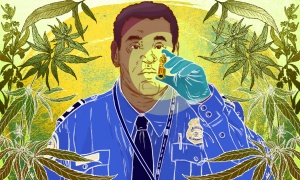What you need to know about CBD and travel legality

The CBD industry is currently worth more than $5 billion and is expected to reach sales of more than $20 billion by 2024. Cannabidiol oil, better known as CBD oil, can be infused in a variety of products and then sold to customers. CBD is mainly extracted from industrial hemp, a sub-species of the Cannabis sativa plant. Despite being widely popular, questions about the travel legality of CBD still linger.
The 2018 Farm Bill permits the movement of hemp-extracted CBD oil across state borders. However, some states still prohibit the transfer of alternative CBD oils, such as those derived from marijuana, across state borders. This means you can purchase high-quality hemp CBD tinctures and carry them with you when travelling.
Here are 3 facts you need to know about CBD and travel legality:
- 1) CBD derived from hemp is federally legal
In 2008, the United States Congress passed the Farm Bill that allows individuals to cultivate, purchase and consume CBD within certain regulations. Permitted CBD oils should strictly be derived from industrial hemp. Hemp contains significantly less THC quantities compared to traditional marijuana. Excessive consumption of THC can have adverse psychiatric effects in the long term. Cannabidiol, on the other hand, is a different compound found in the Cannabis sativa plant that provides similar medical benefits to THC but without the euphoric effects. CBD products containing THC levels of 0.3% or less are considered to be legal and hence, they can be transported across state borders.
- 2) CBD extracted from Marijuana is illegal under federal law
The U.S. federal government classifies anything with more than 0.3% THC to be marijuana. Furthermore, the 2018 Farm Bill prohibits the transfer and use of CBD oils extracted from marijuana. When travelling, it’s important to check the THC levels of various CBD products that you’re carrying along with you. The Transportation Security Administration (TSA) is a U.S. federal body that is mandated with maintaining safety of aircraft travelers. If you’re caught carrying CBD products with THC levels greater than 0.3%, you risk being detained. Ensure you conduct ample research beforehand to identify whether your destined country/state provides friendly CBD travel protocols.
- 3) CBD travel legality depends on the state or country that you’re visiting
CBD is legal in most states within the United States, albeit under certain conditions. For example, in California it’s illegal to add hemp-derived CBD into human or animal foods. In Idaho, CBD oil extracted from marijuana is totally illegal. It’s important to find out the specific laws governing CBD transference and usage within your landing state before travelling. Good news is, hemp-extracted CBD oil is quite legal under the federal law. However, CBD oil is illegal in South Dakota, Idaho and Nebraska. CBD oil is legal in many European countries such as Greece, Switzerland, Sweden, Croatia, Hungary and Cyprus. CBD has anti-inflammatory properties and can be used to manage anxiety, depression, chronic pain and a variety of mental disorders.
The facts above will help you traverse the murky waters of CBD travel legality.

